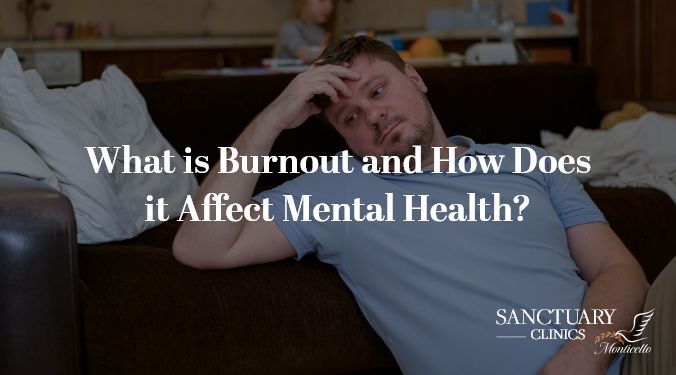Burnout is a common phenomenon among people in most occupations today. It has a significant effect on mental well-being. It is, however, easily identifiable, and even treatable. In this article we will explore the definition and nature of burnout and list a few ways you can see it coming and respond to it.
Burnout can be defined as a state of emotional, mental, and physical exhaustion triggered mostly by work/occupational related factors. The use of the term “occupational’ means it isn’t limited to a formal setting. Those in different occupations e.g., being a stay-at-home mom or being a student, can also experience this phenomenon. Burnout can have a significant negative effect on your mental health which wears you down and may manifest physical symptoms. It is hypothesized it is caused by excessive stress spanning a considerable amount of time, coupled with an inability to handle or deal with said stress/stressors. People who work in stressful environments where they find themselves significantly exerted are predisposed to developing burnout. A classic example is the healthcare worker who must work long hours in an environment with constant emergencies, reduced sleep hours, and a constant requirement to function at a high level. Also, people who work hard with too little recognition, people with personal traits like perfectionism, or people who are workaholics tend to burnout more than other people.
Burnout has been described as a psychological syndrome which may require professional assistance and treatment to be effectively handled. Burnout has been characterized to consist of three dimensions. The first is emotional exhaustion, which presents as feelings of low energy or “being drained”. Then there is cynicism which presents as a mental detachment from your occupation and can have accompanying feelings of negativism related to your occupation. Here, you might fantasize about or even contemplate quitting your job. Lastly, a sense of personal incompetence may fill your experience of day-to-day life at your occupation and you may feel less effective at your normal tasks.
How does burnout affect my mental health?
Your mental state suffers a lot from this state of being. People who experience burnout usually stop enjoying their work as they previously used to. In the past, they may have been characterized by enthusiasm and a passion for their work/occupation, which is presently non-existent or in very little supply. They feel tired or overwhelmed by even the simplest tasks and are sometimes unable to identify with their role in their place of work. They may also stop being compassionate to those around them, displaying irritability and ill-treatment of colleagues and even family members. They sometimes feel helpless about the situations around them and may tend to isolate frequently. This might mean taking a lot of sick days or long-term leaves from their job.
Symptoms of burnout such as chronic fatigue, sleep difficulty, emotional exhaustion, and insomnia may be confused with a mood disorder like depression. However, there are some major distinguishing factors between burnout and depression. For starters, burnout is not defined as a mental disorder since it doesn’t fulfill the necessary medical criteria to be called one. It has only been described as a negative mental state or a psychological syndrome. Depression, on the other hand, meets the medical criteria. Burnout usually has a trigger or stressors associated with its development e.g., studying for finals, a big promotion at work, or being accepted into a prestigious college. Depression sometimes has no trigger. Depression tends to erode your view of self, while when experiencing burnout, your self-esteem can remain largely intact.
When you are approaching burnout because of increased stress at your place of work, your body releases stress hormones to help cope with the mounting pressure. Now, stress hormones are good and function well in the short-term. They help us solve problems in the here and now which need urgent attention. For instance, adrenaline and epinephrine hormones trigger our bodies into a flight or fight response to deal with an unexpected/ unanticipated stressor. Such as a bee that just landed on your wrist or when you notice you’re running out of time to get to the office. The problem arises when these hormones are produced for longer than usual due to the stressful event taking longer than it should. In this case, your body faithfully continues to produce these hormones which put your body in a constant state of restlessness and tension, which is not how your body is supposed to work.
How can one identify burnout? Ten signs of burnout
Here are some signs of burnout. They can help you to be on the lookout if you, or someone you know, might be edging ever so closely to burnout, or possibly already in a burnt-out state. They’ll also help you to be more self-aware and to notice your body’s way of communicating you are not in a sustainable work environment.
- Moodiness and Irritability
Have you noticed your feelings frequently changing over the recent past? Do you sometimes experience a sudden swing from nice to mean or happy to sad with little or no provocation? Are you more cranky than usual? This could point to something bigger.- 2. Neglecting self-care and withdrawal
How do you handle yourself of late? Do you find time to really take care of your body and listen to it? Sometimes our bodies could be trying to get a message across to us. Are we listening? Do you get enough rest or take time to meditate and think consciously about the day’s experiences? Or do you drown out the voice of your body with the latest show on Netflix?Do you sometimes find yourself pulling away from people? Do you find yourself lacking the emotional and mental capacity to deal with normal day to day interaction with friends and family? Your withdrawal could be a result of mental and emotional exhaustion.
- 2. Neglecting self-care and withdrawal
- Constant feeling of exhaustion; emotional and physical
When was the last time you truly felt relaxed without any worry of an impending deadline? Does your body feel tired all the time? Do you find you’re always up to something and never really settling down to rest, even on the weekends? It could be too many work-related and social activities get in the way of refueling and recharging your body and mind. - Physical manifestations of burnout
Headaches, joint pains, sleep problems. Do these sound familiar? It could be your body saying it’s had enough. Consider taking a break and developing a healthy work schedule which helps you balance work and rest sustainably. - Feelings of sadness and loneliness
These may hit you suddenly out of the blue or be slowly brewing as you go through your day. They could point to something if accompanied by increased stress in your immediate environment. - Feeling a decline in personal competence/performance
Do you feel less effective in the work you do? Do you feel much less passionate or enthusiastic about your occupation of late? Do you find yourself frequently detached or distanced from your work? Does it take you longer to complete tasks than before? Sometimes our own minds bear witness to this. We notice the decline within ourselves as we fall deeper into burnout. - Feeling helpless
This can be described as feeling unable to do much to change the current state of things in your burnt-out mind and your environment. You might be aware of the signs and symptoms you are experiencing, but you also find you lack the desire, motivation or ability to change things. - Reduced interest
Do you find little or no thrill in things which would draw your attention in the past? Do you find what you were once passionate about, like your job, no longer draws your interest? Do you sometimes feel a sort of numbness and apathy towards life? An affirmative response to this might point to an underlying burnout syndrome. - Forgetfulness
Have you forgotten important events recently? How about an anniversary or a friend’s or relative’s birthday? Or maybe even trivial things like your car keys? This could point to something more, especially if it occurs with the other signs above. - Difficulty sleeping
Insomnia could point to a mind which is stressed out with the demands it has had stacked up on it. Do you find your thoughts race at night, so much so you find it difficult to settle down and get a moment’s sleep?
Conclusion
In summary, burnout is a common psychological phenomenon in the workplace today. It mainly comes from having stress which is not effectively dealt with. It has a significant effect on the mental health of those it affects, presenting with chronic fatigue, emotional and mental exhaustion, and insomnia. It should, however, not be confused for depression. Burnout can be readily identified, diagnosed, and treated by a qualified mental health practitioner.









